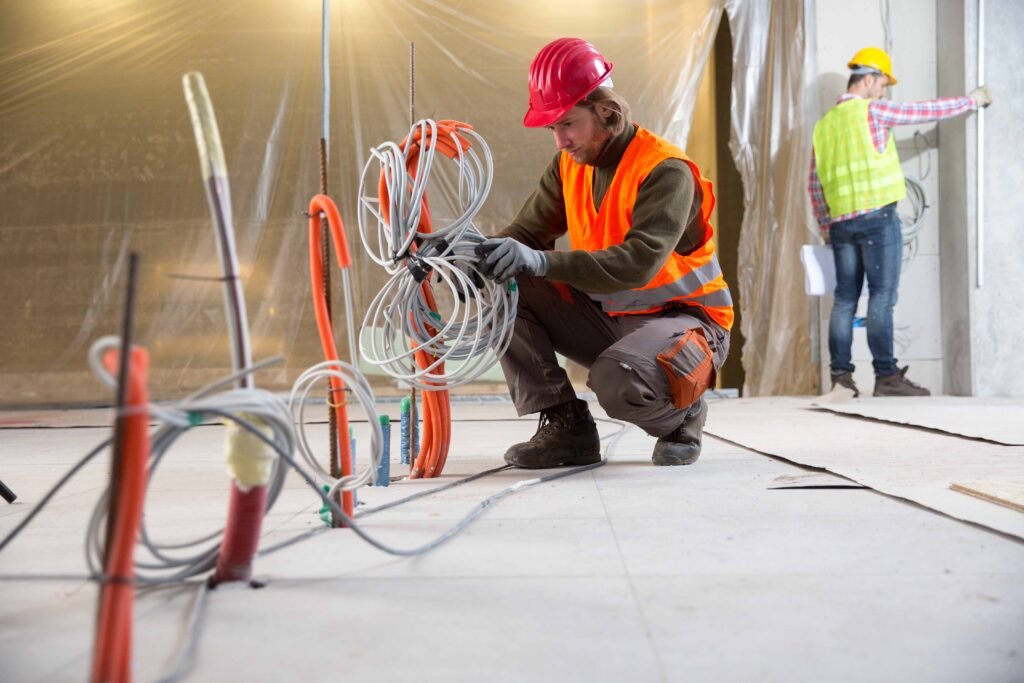When it comes to choosing the Best Electrical Panel, understanding its role is crucial in your home’s electrical system. This will ensure two things: first, it will ensure safety, as it protects your home in case of overloads, electrical failure, or fluctuations. Second, it will distribute power efficiently.
Thus, doing your due diligence in selecting the right electrical panel not only optimizes security but also minimizes risks. With this detailed guide, you will confidently choose the right panel for your home’s electrical system. Let’s get started!
What does an Electrical Panel do?
They are essential in managing a home’s power consumption needs. They are responsible for multiple functions, but the ones that stand out are power distribution and protection against electrical overload or fluctuations (as mentioned above).
We will now discuss several electrical panel types to help you gain a better understanding.
Types of Electrical Panels
Various types of Electrical panels are there, but we have outlined the most common ones for you:
-
Main breaker panels
These panels contain a main circuit breaker that controls and distributes power throughout a structure.
-
Sub Panels
They are smaller panels that are connected to the main panel. If any additional circuits are required in a specific area, these panels will be used, preventing the chances of overloading.
-
Fuse Boxes
Somewhat obsolete, but still used in homes, they use fuses instead of circuits.
How does an Electrical Estimating Company know what is right?
An Electrical Estimating Company begins its work, and they have to assess the overall capacity of a home. It helps them to create an accurate budget. Expert estimators can assist their clients in choosing the best material according to the budget. This means that they have to calculate the total load of a home’s electrical system. After doing that, they will have to choose what type of panel would be best suited for their home’s requirements.
After understanding common electrical panel types, let’s delve into their key components and the role of an estimator, respectively.
Key Components of an Electrical Panel
An electrical panel is composed of various components that simultaneously work together. Let’s look few of the examples:
-
Circuit Breakers
These are responsible for keeping your electrical panel safe. They do this by detecting any overload or short circuit. In any case, they will automatically shut off electricity to keep a device safe.
-
Bus Bars
This component is responsible for the appropriate distribution of power. They conduct electricity from the main power supply to the circuit breakers individually.
-
Knockouts
This term refers to pre-cut holes in the electrical panel for placing the necessary wires.
Know the role of a Residential Estimator
To install and maintain a system’s efficiency, a Residential Estimator has to carefully assess all the cost-required components. SMA Estimating LLC will assist you with all aspects of electrical work. Thus, ensuring that your systems operate ideally, according to your budget. In addition to installation costs, they can also compute the running expenses of the system.
At this point in the article, you have acquired the knowledge about the types of electrical panels and primary components along with their functions. Let’s explore informative tips on how to select a suitable electrical panel.
Tips to Select the Best Electrical Panel
1. What are your power needs?
The first thing you have to do is assess your power needs for your home. For this, you have to outline all the electrical devices and appliances that you will be using daily. After you have determined all the devices, check the power consumption ratings for each device.
2. Know an Electrical Panel’s Capacity
The second thing you have to do is to evaluate a panel’s capacity. In other words, you have to assess if a panel is capable of handling your home’s electrical needs safely and effectively. This will be done by analyzing the wattage ratings of a panel. For homes, the typical requirement for a panel is at least 100 amps. But, with smart technology-driven homes, a panel of 200 amps or more might be needed.
3. Does it possess safety features?
Safety above all, and that is why you know a selected electrical panel offers the features of safety for your home. Before selecting an electrical panel, you have to check for built-in surge protection. This feature protects your electrical system from sudden voltage spikes. Another feature to look out for is ground fault circuit interprets, and they are important as they prevent electrical shocks.
4. Keep Future expansion in mind!
Ensure that you have considered future expansion before selecting your electrical panel. So, you have to think about any potential home expansion or renovation before selecting your electrical panel.
Conclusion
In the end, choosing the Best Electrical Panel can be problematic if you do not have the right knowledge. An electrical panel is not only responsible for distributing the power in your home, but it also ensures your home’s safety. Therefore, implement this article for your selection process and ensure that you have a team of professionals like SMA Estimating LLC by your side. There are many factors at play in an electrical project, so hiring professionals can help you navigate through the complexities more easily.







